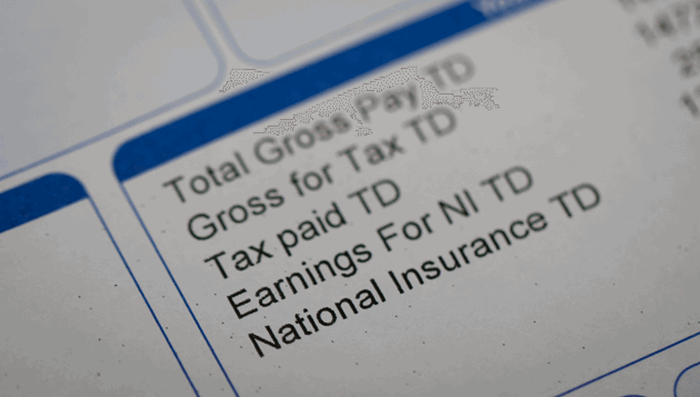-
Blogs
- All Blogs
- Business Advice
- Business News
- Culture & Performance
- Disciplinary & Grievances
- Employee Conduct
- Employment Contracts and Documentation
- Employment Law
- Employment Rights Bill
- End of Contract
- Equality & Discrimination
- Food Safety
- Leave & Absence
- Managing Health & Safety
- Occupational Health
- Pay & Benefits
- Recruitment
- Taxation
- Testimonials And Case Studies
-
Case Studies
-
Free Downloads
Blogs

Dismissal Due to Depression
Employers in the UK can dismiss an employee for depression-related incapability, but only as a last ...
Read more
What is a Disciplinary Hearing?
A disciplinary hearing is a formal meeting to address serious employee misconduct, preceded by a ful...
Read more
Employer Rights and Responsibilities in ...
UK employers must ensure fair pay, safe working conditions, holidays, and non-discrimination under l...
Read more
The Five Fair Reasons for Dismissal - A ...
Dismissing staff from your company can be a challenging task and getting it wrong could result in a ...
Read more
Navigating The Collective Bargaining Agr...
What does a collective bargaining agreement mean? This article covers Collective Bargaining, a proce...
Read more
How to Handle Unfair Treatment at Work: ...
Unfair treatment in the workplace can be highly problematic for both workers and employers, leading ...
Read more![[Top Tips] Improving Hygiene in the Workplace](/media/2345/top-tips-hygiene-header.png?width=700)
[Top Tips] Improving Hygiene in the Work...
It’s a difficult topic—personal hygiene. Whether an employee is refusing to wash their hands, or a p...
Read more
2025 Health & Safety Executive RIDDOR St...
RIDDOR or the Reporting of Injuries Diseases and Dangerous Occurrences Regulations is the law requir...
Read more
Understanding Wage Differentials and Ide...
Wage differentials are pay gaps between similar workers due to occupational (skill/role variance), r...
Read more
Who is Responsible for Health & Safety i...
Employers are legally responsible for workplace safety and must appoint a competent person (with tra...
Read more
Perceptive Discrimination
Did you know that an employee doesn’t have to have a protected characteristic to claim discriminatio...
Read more
ACAS (Advisory, Conciliation and Arbitra...
In this article, Croner covers ACAS (Advisory, Conciliation, and Arbitration Service). Acas is an in...
Read more
What is the Care Quality Commission (CQC...
The CQC stands for the Care Quality Commission, which is the independent regulatory body for the car...
Read more
Health & Safety in Construction
Staff safety matters in all industries, in all workplaces, and in all roles. However, Occupational H...
Read more
Autumn Budget 2025: Confirmation of Nati...
Rachel Reeves has unveiled the Autumn Budget today (26/11/2025) which looks to raise taxes overall b...
Read more
EAP in the Workplace
As part of their Duty of Care, employers must protect the welfare and wellbeing of their workers in ...
Read more
Health & Safety Audits in the Workplace
Croner covers how businesses should undertake health and safety audits in the workplace. A health an...
Read more
The Right to Freedom of Association in t...
Croner covers freedom of association, guaranteed by Article 11 of the ECHR and UK laws such as the T...
Read more
What Is the Law on Breaks at Work?
Employees who work more than six hours a day are legally entitled to at least a 20-minute rest perio...
Read more
Everything Employers Should Know About S...
Redundancy is a form of dismissing employees. In most cases, redundancies can happen when you decide...
Read more
Hazard Analysis and Critical Control Poi...
If your business operates within the food and drink industry, then you should be familiar with a haz...
Read more
Construction Company Fined £1 million Af...
A construction company specialising in road resurfacing in London was fined £1 million after a worke...
Read more
Company Fined £270,000 After Worker Seri...
A County Durham waste recycling company was fined £270,000 following the injury of an employee. The ...
Read more
Council Fined After Failures Led to Deat...
Western Isles Council pled guilty to a charge under the Health and Safety at Work Act following the ...
Read more
How to Work Out Pro-Rata Pay
Croner covers all the pro-rata essentials for employers, including how to calculate pro rata salary,...
Read more
What you need to know about illegal dedu...
Croner covers what qualifies as an illegal/unlawful deduction of wages, unpacking what counts as a ‘...
Read more
Religious Discrimination in the Workplac...
Religious discrimination happens when an individual is treated unfairly at work because of their rel...
Read more
Employment Rights Bill: Lords maintain s...
The 28th of October (2025) saw the debate regarding the Employment Rights Bill resume in the House o...
Read more
Contractual Redundancy Pay
Contractual redundancy pay is payment given to employees who are made redundant, as outlined in thei...
Read more
What is Occupational Sick Pay?
Occupational sick pay is a payment from employers that provides their employees with financial suppo...
Read more
Guide to Employee Improvement Plans
A performance improvement plan, or PIP, is an approach used by employers to help an employee improve...
Read more
Can an Employer Withhold Pay?
As a business owner you need to know the legalities surrounding withholding payments from employees....
Read more
Why Optimism Bias Led to £54,000 Penalty...
'Fall from height' is often the deadliest, yet most preventable workplace injury category. Let’s...
Read more
The Nine Protected Characteristics in UK...
In UK employment law, the Equality Act 2010 identifies nine protected characteristics. In HR, we tal...
Read more
Employer's Duty of Care
Employers have both a moral and legal obligation to protect the health and safety of their workforce...
Read more
Protected Disclosures? Why a café worker...
“From an employer’s standpoint, the key takeaway is the importance of recognising and responding app...
Read more
Employment Rights Bill 2025 Autumn Updat...
With the Employment Rights Bill in the final stages of the parliamentary process and looking increas...
Read more
Pregnancy Discrimination
Pregnancy discrimination happens when someone is treated unfairly at work, on areas such as hiring, ...
Read more
Positive Action
Positive action lets employers support underrepresented groups by removing barriers to recruitment, ...
Read more
Gender discrimination
Discrimination in the workplace occurs when you treat an employee less favourably because of Protect...
Read more
Autism in the workplace
Individuals with autism often display highly productive traits, such as exceptional attention to det...
Read more
Direct discrimination at work
Did you know that direct discrimination at work can occur as early as the interview stage in employm...
Read more
Ageism in the workplace
When you think of age discrimination, perhaps your mind automatically assumes a young person is bein...
Read more
Disciplinary procedures in the workplace
When running a business, you will need to deal with grievances and disciplinary issues from time to ...
Read more
Having difficult conversations
At Croner, we know that having difficult conversations at work is never enjoyable, but sometimes nec...
Read more
Workplace Discrimination
Individuals from diverse backgrounds and with a variety of life experiences make up the modern workp...
Read more
Disability: employer responsibility
If you weren’t already, it’s important to be aware of your legal obligations towards disabled employ...
Read more
Breach of Employment Contract
Your employment contracts are legally binding agreements between you (the employer) and your staff m...
Read more
Automatic Unfair Dismissal – A Croner Gu...
Typically, an employee is required to have worked for at least two years for an employer to qualify ...
Read more
What is Constructive Dismissal Compensat...
Constructive dismissal compensation, sometimes referred to as “unfair dismissal compensation”, is th...
Read more
What is Capability Dismissal?
Capability dismissal can be a contentious issue and one that often ends up at an employment tribunal...
Read more
Most Common Risk to Health and Safety in...
All workplaces have a shared number of health and safety hazards that appear across industries and e...
Read more
What is The Health and Safety Executive ...
The flagship for Health and Safety regulation in the UK, the Health and Safety Executive (HSE) is th...
Read more
What is quiet firing?
You may have already heard of ‘quiet quitting’, where employees do only the bare minimum within thei...
Read more
Back to School Support for Working Paren...
With the school summer holidays ending in September, working parents will need to re-organise their ...
Read more
Absence Management: Creating a Policy Th...
Did you know that an unauthorised leave of absence could lead to disciplinary action or a misconduct...
Read more
HR Auditing
Happy, motivated, and proactive employees are the driving force of any successful company. Ensuring ...
Read more
Line Management
What can effective line management achieve for your business and how can you increase its impact wit...
Read more
Vicarious Liability
From time to time, employees may make a mistake at work and employers could be held liable for it. ...
Read more
Conflict Management
Conflicts in the workplace are bound to pop up from time to time. Sometimes, employees may channel ...
Read more
The Role of HR Compliance
At Croner, we use the term ‘HR compliance’ frequently because compliance is critical; not just to ru...
Read more
Small Business Contracts
Employment contracts are crucial to hiring and retaining valuable staff, as well as making sure you ...
Read more
Business Expense Management – Top Tips f...
We know that your business expenses are the most important reason on whether your business flourishe...
Read more
Small Business Checklist
At Croner, we support thousands of UK businesses with our expert and reliable small business HR serv...
Read more
How to write an employment contract
It's your legal obligation as an employer to provide each employee with a written employment contrac...
Read more
Lay Off Clause
We understand that laying off an employee is never pleasant or what you’d perhaps planned during the...
Read more
Do your employees have a right to flexib...
Workplaces are moving away from the traditional 9-5 and adopting a more flexible approach to work li...
Read more
Employment Restrictive Covenants
When one of your valued employees leaves your business, you may have understandable concerns about t...
Read more
Demand for Early Conciliation Increases ...
ACAS recently published its figures regarding early conciliation. The results indicated that the num...
Read more
Herefordshire conservatory firm fined af...
The accident “This incident could have easily had fatal consequence, and it highlights the importan...
Read more
Minimum wage breaches result in £5 milli...
The Government’s report on minimum and living wage enforcement for the financial year of 2023/24 ind...
Read more
£1 million fine issued after worker kill...
The accident "Nearly a quarter of all workplace transport fatalities occur during reversing – a wel...
Read more
Health & Safety Outsourcing Benefits
Outsourcing is a big decision, so it's important you consider all factors before committing to any a...
Read more
House of Lords Protection from Unfair Di...
An amendment to the Employment Rights Bill, namely the day-one protection for unfair dismissal has b...
Read more
Employment Rights Bill - Implementation ...
The Government has released its roadmap outlining how it will deliver the Employment Rights Bill thr...
Read more
World Youth Skills Day 2025
July 15th signals the arrival World Youth Skills Day, with this year’s theme centred heavily on the ...
Read more
Non-Disclosure Agreement Guidance
Changes to legislation are happening often in the United Kingdom, so it’s good to get up to date abo...
Read more
Martyn's Law: An employers’ overview
The Terrorism (Protection of Premises) Act 2025, otherwise known as Martyn’s Law, is legislation des...
Read more
Health and ‘SAIfety’ - AI for Health and...
With the rapid development of AI technology across multiple disciplines and spanning industry sector...
Read more
White Ribbon UK’s ‘Right to Respect’: Ju...
Throughout the month of June White Ribbon will be promoting their ‘Right to Respect’ campaign, suppo...
Read more
The Complete Guide to Paternity
Paternity leave is an almost inevitable part of managing your employees. All employees who meet the ...
Read more
Working Time Regulations
The Working Time Regulations 1998 is the leading piece of legislation that determines your employees...
Read more
An Overview Of The EU Working Time Direc...
There are many similarities between the laws that govern EU and UK working hours, however there are ...
Read more
The importance of HR policies
As an employer, ensuring that your workforce is clear on what’s expected of them in the workplace is...
Read more
What are statutory employee rights?
If you’re an employer, you likely have a whole team of trusted employees under your wing, or maybe j...
Read more
Employment Law essentials for small busi...
UK Business owners need to be aware of multiple factors when it comes to employment law. As with all...
Read more
A brief employers’ guide to working with...
As an employer you are obligated under employment law to ensure that you recognise trade unions and ...
Read more
How to implement a four-day working week
With flexible working legislation now in place meaning that employees are legally entitled from day ...
Read more
Mental Health First Aiders
With mental health awareness week upon us, it’s time to focus on what employers can do to improve th...
Read more
Unfair Dismissal - Everything you need t...
Unfair dismissal occurs when an employer terminates an employee’s contract without a valid reason or...
Read more
Criminal law vs civil law for employers
Employers are tasked by both criminal and civil law to ensure the safety of their workforce and ensu...
Read more
The importance of following HR process
As a business owner it is imperative to have outlined a process when it comes to HR, whether this be...
Read more
A brief employer’s guide to the ISO 4500...
As an employer you have a duty of care to your employees, which means you need to take responsibilit...
Read more
Employment law changes coming in April 2...
April 2025 heralds some of the most important changes to employment law in several decades, with the...
Read more
Tupe tips for employers
Selling a business as an employer comes with its own set of legislation regarding the protection of ...
Read more
Written warnings guide
Knowing when you need to issue a written warning to a staff member is tricky. It can be an unpleasan...
Read more
How to conduct employee 1-1s
Your employees are the backbone of your business, so it pays to know what’s going on in their day to...
Read more
Mental health in manufacturing
In the working world there has been a monumental push to recognise mental health’s importance to ove...
Read more
The Gig Economy and Health & Safety: A G...
The gig economy transformed the way we work. From delivery drivers to freelance consultants, more pe...
Read more
Recruitment in hospitality: A checklist
Recruiting for staff to fill vacancies in the hospitality sector can be particularly challenging. Th...
Read more
The Correct Lifting Technique for Workpl...
Regardless of industry, your workers will find themselves in situations where they need to lift and ...
Read more
What is Workplace Bullying?
Bullying, just like harassment in the workplace can have detrimental effects on the productivity and...
Read more
Supporting pregnant employees: An employ...
Colleagues who are pregnant have both employment law and health and safety protections afforded to t...
Read more
Statutory neonatal care pay and leave
Part of the Employment Rights Bill, neonatal care leave and pay will come into enforcement from Apri...
Read more
Hand-arm vibration in the workplace
Hand- arm vibration is something that employees in certain manual industries can be exposed to, part...
Read more
Flexible working - What do employers nee...
Flexible working has been making headlines recently, not least because several large companies have ...
Read more
Employee rights on grievances at work
At some point in running a business you might encounter an employee grievance, when this happens the...
Read more
Tattoos in the Workplace
Fashion and tastes are cyclical. With styles and ideas coming in and out of fashion. In the early 1...
Read more
Mental Health Discrimination at Work
Sometimes, people treat those who have mental health problems differently at work because of their m...
Read more
ESQCR Regulations
As an employer it’s important that you ensure all electrical equipment is properly installed and mai...
Read more
Employment Rights Bill – What does it me...
On the announcement of the Employment Rights Bill, the government stated they were planning to mak...
Read more
Redundancy Letter - How to write them?
Whenever you consider making an employee redundant, you need to follow the correct procedure. This m...
Read more
Manual Handling
As an employer, you have a legal duty of care for your employees. You must protect your workers from...
Read more
Flexible working: Four-day working week
With the Government’s Employment Rights Bill potentially opening the door for increased flexibility ...
Read more
How to increase employee productivity in...
A productive staff is the foundation for your business’s success, so how can you boost your workforc...
Read more
Recording in the workplace
Recording in the workplace can be a somewhat controversial subject. Whilst no employer wants to feel...
Read more
Managing Valentine’s Day in the Workplac...
Valentine’s Day. It’s the only holiday based solely on emotion. Whilst not technically a holiday in ...
Read more
Personal Protective Equipment (PPE) Guid...
If you work with hazardous substances, in construction, or in extreme temperatures, you’ve probably ...
Read more
Predictions for UK Health and Safety in ...
As the Christmas Holidays become a distant memory and 2025 gets into gear, the business world is get...
Read more
Alternatives to fire and rehire
With fire and rehire being set in the crosshairs of the new Labour Government as part of their Emplo...
Read more
How does a company car allowance work?
A company car is a perk that helps recruit and retain great staff. For some, having a company vehicl...
Read more
How to Keep Your Staff Motivated
Keeping your staff motivated can be the key to success for many businesses. If your staff are happy ...
Read more
How to Deal With Employee Victimisation
How do you deal with victimisation at work, as an employer? This type of mistreatment in the workpla...
Read more
Effective Tronc Schemes Setup and Manage...
With the new law regarding tips and how they’re distributed coming into play in October of this year...
Read more
Young people in the workplace
As a new generation starts to enter the workplace there's a good chance that your business will empl...
Read more
PAT testing for Home Workers
With businesses operating work from home and hybrid policies over the last few years and with the La...
Read more
How to Minimise HR and Health & Safety r...
The annual work Christmas party is the chance for colleagues to get together in the festive spirit a...
Read more
Managing Employee Conduct in the Workpla...
It’s essential that employees understand the expectations of them to maintain certain standards of b...
Read more
Toilet Breaks at Work
As an employer, it's nearly impossible to track how many times employees take 'loo breaks' per day. ...
Read more
Work Uniforms: Employer's Guide
You may need to do it for the safety of your staff, or to uphold a professional company profile. Oth...
Read more
Whistleblowing
When a person experiences an unlawful situation at work, they may decide to 'blow the whistle' on it...
Read more
Holiday, use it or lose it! An Employers...
All employees are entitled to a set number of days paid annual holiday, this is outlined in law and ...
Read more
Seasonal Affective Disorder - How to Sup...
As the autumnal weather starts to take hold and daylight starts to ebb at a rapid rate, the mood of ...
Read more
Everything you need to know about gig ec...
An evolution from the typical 9-5 job, gig work has risen to prominence over the last decade. Charac...
Read more
What to do with employees on zero hour c...
With the new Employment Rights Bill the government is set to make some of the largest changes to emp...
Read more
Winter in the Workplace
The shift in seasons has started to become noticeable, the mornings are cold, and the days are getti...
Read more
Smoking Breaks at Work
Employees are not automatically entitled to take a smoke break during the working day, and you are l...
Read more
Racial Discrimination at Work
There are various pieces of legislation regarding racial discrimination in the UK. They protect indi...
Read more
The Employee Work Bonus
Knowing what type of bonus to implement into your business, and what qualifying criteria should be i...
Read more
Fire Safety in the Workplace for Employe...
In light of the recent horrendous tragedy at Grenfell Tower in London, the safety of our premises, i...
Read more
New Duty to Prevent Sexual Harassment in...
October 26th heralds the implementation of the Government’s Worker Protection Act and as part of thi...
Read more
Associative Discrimination at Work
It is unlawful to treat an individual unfairly at work under any protected characteristics outlined ...
Read more
Can I Complete My Own Fire Risk Assessme...
Keeping your employees safe should be one of your main concerns as an employer. This includes implem...
Read more
Redundancy Protection - Employment Right...
In April of 2024, employers were introduced to the changes in redundancy rules, which gives employee...
Read more
Fire Safety
If you’re reading this, and you’re an employer, you—yes you—are responsible for the fire safety...
Read more
Worker Protection Act 2023
The Worker Protection Act 2023 is due to come into effect in October 2024. This act means that emplo...
Read more
The end of 'Fire and Rehire' Schemes
With a new employment rights bill on the horizon, Employers all over the country have been left wond...
Read more
Building Safety Act 2022
The Building Safety Act 2022 brings several measures intended to make buildings and residents safer....
Read more
Gig Economy Workers and Health & Safety
With more and more people around the UK utilising online platforms for the delivery of goods and foo...
Read more
Supporting Disabled Employees with Hybri...
New guidance regarding supporting hybrid working arrangements for employees with disabilities has be...
Read more
Employee Incentives – How to Use Them
Offering incentives for employees shows that you appreciate their contribution to your business’s su...
Read more
TRONC: Top Tips for Managing Tips
TRONC comes into force in October of this year (2024) and businesses in certain sectors will be impa...
Read more
Employer's Guide to Mobility Clauses
Relocation of employees can occur for several reasons. A reduction in work, a business reshuffle, or...
Read more
Tronc Scheme: Employment (Allocation of...
Businesses operating in certain sectors will be impacted the TRONC scheme compliance act which is du...
Read more
Dust in the Workplace
Dust is inevitable in certain jobs, but putting in measures in place for controlling dust can help r...
Read more
Statutory Notice Period
The statutory notice period protects both the employer and the employee when employment comes to an ...
Read more
HR For Small Business
So you've decided to start (or you already run) your own small business. Taking the plunge is a brav...
Read more
Asbestos in the Workplace
Asbestos in the workplace can be a real problem, this once commonly used material can be a hazard to...
Read more
Employee Onboarding Processes
The growth of any business is reliant on talent acquisition. Once you’ve mastered the HR recruitment...
Read more
Noise in the Workplace
According to the HSE, estimates of those suffering deafness, tinnitus or some kind of ear condition ...
Read more
A Comprehensive List of Employment Legis...
It is essential that, as an employer, you are knowledgeable about employment legislation and laws. T...
Read more
What is Salary Benchmarking?
If you work in HR, you would no doubt have heard about salary benchmarking. But what exactly is it? ...
Read more
Indirect Discrimination in the Workplace
How do you best avoid discriminating against an individual? The obvious first thought that comes to ...
Read more
SOSR Dismissals: When is it Fair to Use ...
In order to dismiss an employee lawfully, you need to be able to provide a fair reason for the dismi...
Read more
UK Riots: What employers need to do?
You'll no doubt be aware of the attack in Southport last week. The incident that left three children...
Read more
Common Mistakes in Health and Safety Tra...
No matter what industry or type of workplace you have, all of your employees will require some form ...
Read more
Managing Sickness Absence During Hot Wea...
Sickness absence is a major cause of disruption to business activities. For this reason, it’s unders...
Read more
Do I Need a Sporting Events Policy?
The 2024 Olympics started last week, meaning that it's more than likely you are to see increased sic...
Read more
What is Unconscious Bias?
The vast majority of companies in the country will know about discrimination and will actively take ...
Read more
10 Tips About Your Workforce and Bank Ho...
Do you have employees who work over bank holidays? Public holidays raise all sorts of questions, f...
Read more
10 Common Employee Conduct Issues & How ...
10 Common Employee Conduct Issues & How to Resolve Them We’ve produced more detailed answers to ...
Read more
Preventing Employee Burnout
Often when we talk about employee turnover and burnout, we don't think about managers. But as an emp...
Read more
What is a Critical Incident Report at Wo...
You have a duty of care to your employees, which means you’re required to take all necessary precaut...
Read more
Safety operating procedures in the workp...
Keeping your employees safe while at work should be the top priority for every employer, implementin...
Read more
Agency Worker Guide
Employers sometimes need to hire temporary agency workers to help in certain areas of the business, ...
Read more
Sun, Sea & Unauthorised Summer Absence
The sun is shining, the holiday season is upon us and schools are closing for the end of term break....
Read more
LOLER - An Overview
LOLER is an acronym for Lifting Operations and Lifting Equipment Regulations 1998. This is a set of...
Read more
Sexual Orientation Discrimination
Although there have been huge strides in equality in the past few years, discrimination in the workp...
Read more
Soft Skills
You may well have found that employees with great technical knowledge necessary for a job may still ...
Read more
What is Volunteer Management?
Put simply, volunteer management is the process an employer would take when they are recruiting and ...
Read more
Lone Working Laws and Health & Safety
If you have lone workers, there are UK employment laws and essential health & safety requirement...
Read more
HR Operations: The Business Essential
Running a business of any size can feel like a rollercoaster at times. One week, profitability is up...
Read more
HR Over The Years
As we celebrate international HR day on 20th May 2024, Croner looks back on the key policy changes t...
Read more
Why Businesses Need to Adapt to Digital ...
Data protection and social media policy for businesses While the name of the social media platform ...
Read more
Mental Health Day: How to Improve Your W...
This month is International Mental Health Month: a month to raise awareness, and reflect on what we ...
Read more
Managing strikes in the workplace
Strikes are becoming the norm. Different trade unions have decided to take industrial action to get ...
Read more
Dispute Resolution
No matter the size of your business, effectively resolving disputes is an important skill. There are...
Read more
Are Computer Screens Destroying Your Eye...
According to one study, as many as 90% of people who work at computer screens in the UK have symptom...
Read more
Emergency Response Planning
No matter what your workplace is, you must ensure that you have an emergency response plan in place....
Read more
Carer’s leave
The government has confirmed that under the Carer’s Leave Act 2023, employees with care responsibili...
Read more
Everything You Need to Know About RIDDOR
Every employer has a legal obligation to present a healthy and secure workplace environment. By adhe...
Read more
Seasonal Labor Management
In the UK, seasonal workers play a vital role in agriculture, handling tasks from crop harvesting to...
Read more
One in Five Eateries Failing to meet Foo...
A new investigation by the consumer group Which? has revealed that one in every five eateries in the...
Read more
Health & Safety in the Kitchen
The majority of workplaces have a break area or a kitchen where staff can prepare lunches and eat fo...
Read more
Flexible Working (Amendment) Regulations...
Regulations confirm the removal of the 26-week service requirement from 6 April 2024 From April 202...
Read more
When Allergens Turn Deadly - Food Allerg...
A Food Allergy is an immune system reaction that occurs soon after eating certain foods. Around 2 m...
Read more
Supporting Employees’ Dietary Diversity
It may seem simple at first glance, but for many employers, being inclusive of employees’ dietary re...
Read more
Managing the Health & Safety of Sedentar...
Sedentary lifestyles are commonplace among office workers, but to make matters worse, a large portio...
Read more
How can I improve my HR?
What is the role of HR in the workplace and what are the duties and responsibilities of human resour...
Read more
The Interview Process
The interview process is understandably a nerve-wracking experience for interviewees and interviewer...
Read more
Shift Pattern Change Laws
It doesn’t matter how rigid your employment contracts are, employees can still request changes to th...
Read more
UK Holiday Laws: A Guide for Employers
The case of Harpur Trust v Brazel has significantly impacted UK holiday entitlement laws, leading to...
Read more
Employer Health and Safety Tips
It's an employer's job to ensure the safety of their employees and anyone who visits their premises....
Read more
Ethnicity Pay Gap
Unlike the gender and executive pay gaps, it’s not a legal requirement to report on the ethnicity pa...
Read more
Sex Discrimination
Sexual discrimination can be difficult to root out in organisations. Especially when it’s not obviou...
Read more
Health and Safety Inspections and Reinfo...
We’ve all seen the news recently with hundreds of school buildings up and down the country being tol...
Read more
Tackling Loneliness in your Workforce
Loneliness within your workplace can have a significant impact on workplace wellbeing, your employee...
Read more
What is a Training Agreement?
As an employer you want your employees to reach their full potential. The more productive and engage...
Read more
Employment Tribunal
For employers, going to employment tribunals can be scary, time-consuming and stressful. And that’s ...
Read more
Zero Hour Contracts: An Employer's Guide
As demands by unions intensify for a ban on zero-hours contracts, you may well be scrambling to chec...
Read more
Common health & safety policy mistakes
In the UK if you have five or more employees, you are required to have a health and safety policy in...
Read more
Ways to Improve Health & Safety Engageme...
The health and safety of your employees should be at the top of your management priority list, no ma...
Read more
Data Protection
While members of the public may have access to specific information, certain pieces are confidential...
Read more
What should employers consider for e-bik...
Many businesses like yours are implementing schemes to improve sustainability, people have started t...
Read more
Constructive Dismissal
Sometimes it can be complicated trying to understand constructive dismissal. When an employee resign...
Read more
How to Combat Poor Housekeeping
Slips, trips and falls remain the highest cause of workplace injuries reported to the HSE—31% of the...
Read more
How to Reduce Slips, Trips & Falls in Yo...
Slips and trips are the most common cause of injury at work. On average, they cause 40 per cent of a...
Read more
Working Without a Contract
As an employer, an agreement exists between you and your employees. This agreement may not be down i...
Read more
Drugs & Alcohol in the Workplace
The 2017/18 Crime Survey for England and Wales found that one-third of adults aged 16–59 took illici...
Read more
Managing Health and Safety for Employees...
The Advisory, Conciliation and Arbitration Service (ACAS) describes homeworking as, “a type of flexi...
Read more
Gender Diversity in the Workplace
As an employer, you should be in no doubt aware that gender equality should be a given. Equal opport...
Read more
Supporting Employees' Mental Health
Mental health is as important as ever. Each week it seems like there's another story in the news ref...
Read more
Understanding the Law on Carrying Over A...
All workers are entitled to take at least 5.6 weeks of leave per leave year. This is pro-rated for p...
Read more
What is A Private Pension?
A private pension, or personal pension plan, is a money-saving scheme that can be used by your emplo...
Read more
Health and Safety Checklist
The health and safety of your employees should be at the top of your list of priorities. Creating a ...
Read more
Are you ready for the extra bank holiday...
This year the UK will see an extra bank holiday added to the work calendar to celebrate the coronati...
Read more
Benefits of diversity in the workplace
Today, more employers are prioritizing diversity, inclusivity and equality initiatives to help their...
Read more
Case Law Update: Earl Shilton Town Counc...
Permitting unequal access to toilets and toilet facilities between male and female members of staff ...
Read more
What to Expect in HR and Employment Law ...
2022 was a bumper year for HR and employment law headlines. Russia's invasion of Ukraine led to many...
Read more
Case Law Update: Harpur Trust v Brazel 2...
In January 2023, the government launched a consultation with the aim of overturning the effect of th...
Read more
Case Law Update: Mobbs v Weetabix Limite...
Summary Is a management style that involves humiliation and intimidation ever appropriate? No, an E...
Read more
Overcoming the Hiring Crisis
Any business looking to grow in size will need to rely on talent acquisition. When you’ve perfected ...
Read more
Disability Discrimination at Work
As an employer, you need to understand disability discrimination. Whether you employ disabled staff ...
Read more
HSE Health and Safety Stats for Great Br...
The Health and Safety Executive (HSE), Britain's regulatory body for workplace health and safety, ha...
Read more
Neonatal pay
Employers have a great deal to consider when an employee becomes a parent. Those who manage staff wi...
Read more
Training and Development
Business owners may be excused for not always prioritising employee training and development. Howeve...
Read more
How to Make Team Building Less Awkward
When you look at team building through the lens of HR and health & safety, there are very few ac...
Read more
CV Fraud can be Prosecuted – When Should...
In August 2022, a chief executive was ordered to pay back part of his salary after falsifying his Ph...
Read more
How to Attract the Right Talent and Meet...
In the current employment market, it can be difficult to get the people you need. Many businesses fe...
Read more
Remote Working Bias – “The Zoom Ceiling”
Working remotely can present barriers to progression. Not quite a ceiling, more of a screen, the ter...
Read more
Acceptance of Resignation Letter
When an employee quits their job, resignation letter acceptance is more crucial to business success ...
Read more
HR's Role in Future-Proofing Your Busine...
What is HR's Role in Future-Proofing Your Business? No matter the size of your company, HR (Human R...
Read more
Verbal Warning at Work
From time to time, your employees may break the rules so you may need to issue a verbal warning at w...
Read more
Shared Parental Leave
Shared parental leave (SPL) is a useful tool to help reduce your organisation’s gender pay gap, as w...
Read more
Case Law Update: Kong v Gulf Internation...
The Court of Appeal has upheld a decision where an employer successfully defended a claim for automa...
Read more
Time off for Dependants
Emergencies happen. When they do, your employees might need to take time off. As an employer, you’ll...
Read more
Fit For Work - What You Need To Know
According to the NHS, in the first month of 2022, 539,300 business days were lost due to mental heal...
Read more
Constructive Dismissal Examples
In a previous article, we defined constructive dismissal and explained how to avoid it. In this arti...
Read more
Grievance Procedures in the UK
Your working environment consists of individuals from different backgrounds, with unique life experi...
Read more
Payslips - An Expert Guide
If you’re a growing business, you’ll have registered for PAYE and be handing out payslips each month...
Read more
The Pound Falls – Pay Rises
Following the mini-budget, or the fiscal event, the pound hit an all-time low against the dollar. W...
Read more
Pet Bereavement Leave - What is HR's Dut...
“My employee is asking to take time off work following the death of their pet – do I have to let the...
Read more
Queen State Funeral Bank Holiday – Are E...
The news of her Majesty Queen Elizabeth II’s death rocked the UK and the world. Now, as we enter a p...
Read more
Can You Sack Someone Without Warning?
Termination of an employee’s contract is, sadly, a part of running a business. Not only is it a diff...
Read more
Coming Out at Work
Add this infographic to your website by copying and pasting the following embed code: <div sty...
Read more
Is The Cost of Living Crisis Pushing Peo...
As the cost of living crisis worsens, and the colder months creep ever closer, some staff are consid...
Read more
When & How to Use Additional Days Off as...
An extra day off as a staff benefit might sound like an employer’s worst nightmare. In certain circu...
Read more
Communication in the Workplace
Is to key success in business communication, which is why the right to workplace important get. Fai...
Read more
Summer Holidays 2022 – An Employer’s Gui...
The school summer holidays are in full swing. Employees with children will likely want time off duri...
Read more
5 Top Tips on Boosting Employee Producti...
Maintaining a productive workforce is crucial to the ongoing success of your company. Here are five ...
Read more
Quiet Quitting – Disengagement or Health...
48 hours a week as standard. Plus overtime. Oh, and you’re expected to answer your phone on the week...
Read more
What is a Flexible Working Policy?
As business are increasingly adopting more agile working methods, your HR department may need to rev...
Read more
Is Maximum Workplace Temperature Legisla...
Following the Great British Heat Wave, many employees (and employers) across the country are asking ...
Read more
How to Fire Someone Without Them Hating ...
Letting someone go is tough. Doing it nicely is even harder. In this article we ask the question: “...
Read more
Summer Issues for Employers
With longer days and higher temperatures, summer is likely an exciting time for both you and your em...
Read more
Uber Files - Key Learnings on Workplace ...
A recent leak of 124,000 records from Uber brings several issues to light. There is a lot to cover, ...
Read more
Managing Mass Resignations
I’m confident there is at least one person in the UK who needs advice on this matter right now. As ...
Read more
Education in 2022 – An Employment Law Pe...
What issues are HR departments facing in schools in the UK this year? In this article, we’ll break ...
Read more
Grievances in the Workplace
If an employee wants to raise a grievance at work, you must take it seriously. Whether you think it'...
Read more
Case Law Update: Discrimination & Constr...
An employment tribunal has upheld a claim for indirect sex discrimination and constructive unfair di...
Read more
What are my Health & Safety Responsibili...
Every employer has a duty of care towards their employees—but how far does that duty extend? When t...
Read more
How Does HR Help a Company Succeed?
Often overlooked. Frequently underutilised. Yet absolutely essential to business success. Human Reso...
Read more
Cost of Living – How Can Employers Help?
Maybe it’s the rise in national insurance (NI) contributions. Or, it might be the rocketing energy p...
Read more
How to Deal With Strikes
At the time of writing, Britain is currently experiencing the biggest rail strike action in thirty y...
Read more
Early Conciliation Guide
When working in a large organisation or within a big team, there’s bound to be some disagreements or...
Read more
Employee Stuck Overseas? Here Are Your O...
Last week, thousands of British citizens were stuck abroad due to airline chaos after the bank holid...
Read more
Case Law Update: Harassment & Working Ho...
An employment tribunal has found that a police officer was the victim of harassment and victimisatio...
Read more
Staff Training – What, When, Why, and Ho...
Staff training is key to employee development and progression. If you want your workforce to succeed...
Read more
Hiring Regret – Your Options
Recent research shows that business regret almost half of the new hires they make. If you’ve found ...
Read more
Staff Performance - Management & Reviews
Your people are your greatest asset. They are what makes your business profitable and successful. By...
Read more
Employing Ukrainian Refugees - Part Thre...
A Ukrainian national who hasn’t applied for permission to stay in the UK doesn’t have a right to wor...
Read more
How do I Respond to an Employee Watching...
The recent case of Conservative MP Neil Parish, who was caught watching pornography in the House of ...
Read more
What Does Pro-Rata Mean?
Pro rata is short for ‘proportional’, which is ‘in proportion to’ or ‘a portion of’ an overall value...
Read more
Jubilee Bank Holiday - Are Employees Ent...
Two bank holiday weekends have come and gone. The platinum jubilee is on the horizon. For employees ...
Read more
Case Law Update: Resignation & Terminati...
The Employment Appeal Tribunal was asked to consider whether or not the claimant was dismissed by th...
Read more
HR - Top Tips from Croner Advisors
We asked our advisors to address some of the most common queries they receive via our advice lines. ...
Read more
Employing Ukrainian Refugees - Part Two:...
So, you’ve decided to employ a Ukrainian national, but have concerns about integrating them into the...
Read more
Managing Sickness Absence Without COVID ...
All COVID rules were scrapped in England on 24th February 2022. But COVID is still present today. T...
Read more
Employing Ukrainian Refugees - Part One:...
In response to the Russian invasion of Ukraine, many UK businesses have stepped up to help. Marks &...
Read more
Suspended With Pay – When, Why, How
If you have an employee suspended from work with pay, you must have grounds to do so. The suspension...
Read more
Redundancy Notice Period
Resorting to redundancy to restructure your business, change location, or reduce costs involves lega...
Read more
P&O Redundancies - Three Key Takeaways
Branded one of the most “shameful acts in the history of British industrial relations”, the P&O ...
Read more
The Good Work Plan - Two Years Later
The Good Work Plan was deemed the ‘biggest shake ups of employment law in a generation’. In April 2...
Read more
Case Law Update: Mandatory Vaccines, Dis...
An employment tribunal recently ruled on a case of contractual vaccination requirement & unfair ...
Read more
Quick Guide to Reporting Your Gender Pay...
With little time left to gather data, create your report, and publish it, we thought we’d keep it sn...
Read more
Why Sleep is Essential to Mental Health...
One of the pillars to optimal health and wellbeing—sleep is an essential bodily function. Without it...
Read more
Case Law Update: Dementia & Disability D...
An Employment Tribunal has found that an older employee with dementia was: Constructively dismiss...
Read more
Wrongful Dismissal
Understanding employment law on wrongful dismissal in the UK will spare you not only unnecessary hea...
Read more
Cycle to Work Scheme Explained
Through the Cycle to Work scheme, UK companies can support staff to hire and use bicycles for their ...
Read more
How to Support Women in Management in th...
Supporting women in leadership could make your company a very desirable workplace. With the Great Re...
Read more
Talent Crisis – Is Reskilling the Way Fo...
With staff coming and going in many industries across the UK, lots of businesses are focusing on rec...
Read more
Employment Law Changes – April 2022
2022 is the year when lockdown fully eased in England. With everyone focusing on the remaining restr...
Read more
Compassionate Leave – A Croner Guide
Dealing with serious illness or death in the family will affect most adults during their working lif...
Read more
Four Day Working Week – The UK’s First T...
Back in 2021, Croner took a look at some of the pros and cons of a four-day working week. Now it is ...
Read more
Case Law Update: Discrimination, Charact...
In a decision on unfair dismissal, the Employment Tribunal (ET) had to consider the following: Was ...
Read more
Self-Isolation & Other COVID Updates – 2...
The Prime Minister’s announcement marks an end for COVID restrictions in England. For some, this is ...
Read more
Candidates - Choosing Correctly During t...
Businesses across the UK are facing one of the biggest staffing shortages in living memory. When loc...
Read more
Post Office Scandal – What Companies Nee...
Between 2000 and 2014, more than 700 Post Office operators faced wrongful prosecution for theft, fra...
Read more
Way to Work: A Fresh Start or a Bad Idea...
Getting people into jobs should be a good step forward for the unemployed and for companies that nee...
Read more
Highway Code Changes 2022 - What They Me...
The recent Highway Code changes, applicable since January 29th, 2022, don’t only affect the transpor...
Read more
Burden of Proof in Employment Tribunal C...
Before making a claim in a tribunal, an individual needs to prove they have a case. The burden of pr...
Read more
Historical LGBT+ Employment Cases and th...
When the Equality Act 2010 was introduced it ensured LGBT+ individuals were not discriminated agains...
Read more
Case Law Update: Unfair Dismissal & Inve...
In this case, the Employment Appeal Tribunal (EAT) made a decision on an unfair dismissal & inve...
Read more
COVID Isolation Changes – How It Will Im...
Starting Monday January 17th, 2022, the compulsory COVID isolation period in England has reduced for...
Read more
Termination of Employment
What do we refer to in employment law when we talk about termination of employment? Our advisors hav...
Read more
Will Sick Notes Become a Thing of the Pa...
In the build up to Christmas last year the Government announced its decision to extend the time peri...
Read more
2022 - What to Look Out for in Employmen...
After another year of massive challenges and changes, how should business leaders like you approach ...
Read more
The Increased Risk of Presenteeism Durin...
The statistics show that a third of UK employees have worked while unwell since the beginning of the...
Read more
Top Employment Law Developments - 2021
2021 was marked by the pandemic just as much as 2020. As a result, some of the development from the ...
Read more
Self Employed – A Croner HR Guide
The number of self-employed workers in the UK has seen considerable growth since the early 90s. In S...
Read more
Case Law Update: Bargaining & Time Limit...
In a decision on time limits for tribunal claims, the Employment Appeals Tribunal (EAT) was tasked t...
Read more
Reacting or Redacting? Key Learnings fro...
Earlier this year, one of the most successful video game companies in the world faced mass-walkouts ...
Read more
Tracking or Backing? Learnings from Ama...
Just as a report highlighted the detrimental effect of AI monitoring on workers, the online retailer...
Read more
Adoption Leave: An Employer's Guide
When a member of staff is having a child, they're entitled to some time away from work. The same app...
Read more
Secondment
When your employees aim to broaden their work experience, a secondment could offer the perfect solut...
Read more
Case Law Update: Stuart Delivery Ltd v A...
The Court of Appeal has upheld earlier decisions of the ET and EAT in another gig economy case. This...
Read more
Pulse Survey
A pulse survey can prove a powerful tool to assess the health of your company from within. When used...
Read more
Christmas Parties: 10 Top Tips for Emplo...
The annual Christmas party is the highlight of the year for most employees, but it can end in a head...
Read more
Base Salary
In a dynamic employment market, a competitive base salary can make a difference in attracting the ri...
Read more
Case Law Update: Menopause & Discriminat...
The menopause is a particularly contentious point in employment law. This is because there is preced...
Read more
Top Tips for Avoiding Discrimination in ...
Recruitment can be a costly and time-consuming business. It can also be litigious. There’s legislat...
Read more
Ventilation in the Workplace During Wint...
One of the major tools you can use to combat COVID transmission is ventilation in the workplace. Unf...
Read more
[Halloween] Should I Allow Fancy Dress i...
Halloween is lurking just around the corner, which means the debate begins again—should I allow empl...
Read more
Understaffed: Croner’s Guide to an Emplo...
Can running an understaffed business save you money and make it more profitable? Some business owner...
Read more
HGV Drivers Shortage: Working Hours Regu...
The recent HGV driver shortage has caused supply problems across the UK. As a result, companies may ...
Read more
How to Support a Good Work Life Balance
A positive work life balance will contribute towards your employees’ mental health and wellbeing. An...
Read more
World Mental Health Day Awareness in the...
Supporting your employees through mental health difficulties will benefit both your workforce and yo...
Read more
Avoid End of Furlough Penalties
On the 20th March, the government announced the Job Retention Scheme to help support employers throu...
Read more
How to Ensure Employees Aren’t Working U...
Are your employees struggling to “switch-off” at the end of the working day? The onset of the Covid...
Read more
Post COVID Recruitment: How to Find Cand...
Recruiting new talent is a complex process. Throw in a global pandemic and a recovering economy, and...
Read more
Case Law Update: Moore v Phoenix Product...
The Employment Appeal Tribunal (EAT) has held that a claimant was not unfairly dismissed from the co...
Read more
REACH - An Overview
EU REACH Regulation was brought into UK law under the European Union (Withdrawal) Act 2018. It was i...
Read more
Cutting Remote Workers’ Wages
When faced with an employment law issue, many employers turn to Google for guidance. Now, instead of...
Read more
Top Tips: Avoiding National Minimum Wage...
2021 started with a new round of naming and shaming for businesses who failed to pay their staff the...
Read more
Health & Safety Legislation
Employers are responsible for the safety and wellbeing of their staff. This is stated in the health ...
Read more
ESQCR - An Overview
ESQCR What is it? It stands for Electrical Safety, Quality and Continuity Regulations 2002 as amen...
Read more
Developing Employee Engagement and Cultu...
“Culture” and “engagement” are consistently rated among the top priorities for HR and business leade...
Read more
Types of Discrimination
At first glance, it seems quite simple. There are nine protected characteristics—so there must be ni...
Read more
Health & Safety Policy
No matter the industry, size, or nature of your organisation, health & safety plays a vital role...
Read more
What a Four-Day Week Could Mean for Empl...
Back in 2020, several cross-party MPs urged the Government to consider legalising a four-day week. S...
Read more
Using the Job Retention Scheme
First published 7th June 2020. Last updated 27th July 2021. The Job Retention Scheme was set up to ...
Read more
Dobson v North Cumbria Integrated Care N...
An employment appeal tribunal (EAT) has upheld a claim of indirect sex discrimination because the em...
Read more
Managing Staff Who Don’t Want to Return ...
A change in homeworking guidance on the 19th July only applies in England for now, but the UK as a w...
Read more
Flexible Working: New Private Member’s B...
A Labour MP has introduced a Flexible Working Bill under Parliament’s Ten Minute Rule. If passed, th...
Read more
Types of Employment Status
When employing someone, you need to ensure that their contract reflects their employment status. Thi...
Read more
EU Settlement Scheme - After the Deadlin...
The Deadline for the EU Settlement Scheme (EUSS) deadline has come and gone. However, applications c...
Read more
Case Law Update: Khatun v Winn Solicitor...
An employment tribunal (ET) has held that an employer unfairly dismissed their employee who refused ...
Read more
Case Law Update: Kane v Debmat Surfacing
An employment tribunal (ET) has held that a driver who was sacked after he was spotted drinking in a...
Read more
Right to Work Checks for Foreign Nationa...
The end of digital right to work checks could delay thousands from returning to work across the UK. ...
Read more
Choosing & Retaining a Competent Person
The words competent and competence are used comprehensively throughout health and safety-related leg...
Read more
Vaccines and Testing – What To Do When S...
A number of Covid-19 vaccines have been approved for use in the UK. The virus remains a present thre...
Read more
Top Issues HR are Facing Right Now
This is quite a turbulent time for employers across the country. Continued uncertainty and business ...
Read more
LGBTQ+ Inclusivity – Token Gestures vs R...
Lego recently made headlines for introducing a new LGBTQ+ set, entitled “Everyone is Awesome”. The ...
Read more
Equal Opportunities in the Workplace
The UK is a multicultural, multiabled and neurodiverse country. To reflect this, UK legislation sets...
Read more
Manual Handling Training Guide
The Manual Handling Operations Regulations (MHOR) 1992 defines manual handling as ‘any transporting ...
Read more
Case Law Update: Rodgers v Leeds Laser C...
The employment tribunal (ET) has held that an employee was not automatically unfairly dismissed foll...
Read more
Top Tips - Preparing for the End of Furl...
The end of the furlough scheme is only a few months away. Many businesses have been reliant on the s...
Read more
Roadmap Out of Lockdown - May 2021
Today, Boris Johnson announced that the next stage of the roadmap out of lockdown will go ahead from...
Read more
Addison Lee Ltd v Lange
The Court of Appeal has refused to hear an appeal against a decision in the Addison Lee case. The de...
Read more
Hybrid Working – What are the Alternativ...
As hybrid working continues to gather popularity, this article is the last in a series that has expl...
Read more
Hybrid Working – How to Put it in Place
As hybrid working continues to gather popularity, this article is the second in a series exploring t...
Read more
Statutory Parental Bereavement Leave and...
Sadly, bereavement is something that will affect all of us in our lives. 1 in 10 employees are likel...
Read more
Hybrid Working – Benefits & Drawbacks
Hybrid working continues to gather popularity. This article will be the first in a series exploring ...
Read more
Managing Annual Leave When Staff Return ...
Employees are entitled to a minimum of 5.6 working weeks of paid annual leave each year which can in...
Read more
Case Law Update - Kubilius v Kent Foods ...
An employment tribunal (ET) has held that an organisation fairly dismissed their employee who refuse...
Read more
Do Bank Holidays Count Towards Your Over...
As a general rule, you don’t have to give your employee public holidays as paid leave, meaning their...
Read more
M Austin v A1M Retro Classics Ltd
The Employment Tribunal (ET) has ruled that a claimant was unfairly dismissed after posting his frus...
Read more
Reporting Your Gender Pay Gap in 2021
With gender pay gap reports returning, what do you need to know? Gender pay gap reporting How it s...
Read more
Final Ruling on 'Sleep-in Shift' Case & ...
The Supreme Court has announced its judgment in the Royal Mencap Society v Tomlinson-Blake and Shann...
Read more
Right to Work
It’s important for employers to make sure they are staying on top of changes to employment law and a...
Read more
Spring Budget Breakdown
Chancellor Rishi Sunak’s second budget included details of further support for businesses as they ma...
Read more
Workplace Mediation Advice
Like any relationship in life, working relationships can also have conflict in them. It is natural f...
Read more
A Guide to Furlough & the Job Retention ...
First published 31st March 2020. Last updated 3rd March 2021. On 3 March 2021, it was announced tha...
Read more
Case Law Update: Chalmers v Airport Ltd
The EAT has dismissed a victimisation claim. They ruled that wording used by the claimant in a griev...
Read more
Angard Staffing Solutions Ltd and Anothe...
The Employment Appeal Tribunal (EAT) has provided further clarity on agency worker rights under the ...
Read more
Upcoming Changes to Look Out For in Apri...
Undoubtedly, everyone right now is focused on the roadmap out of lockdown. The possibility of gettin...
Read more
Identifying Slip & Trip Hazards
Every workplace has its hazards. Some are industry-specific, but others are universal. Slips and tri...
Read more
Traineeship Scheme - How To Use
What is a traineeship? Traineeships, introduced in 2013, offer education, training, and work experi...
Read more
Uber Loses Appeal to Classify Drivers as...
On 19th February 2021, the Supreme Court ruled that Uber’s drivers are workers, not self-employed. T...
Read more
Part Time Workers Rights
For some roles, it makes little sense to employ someone on a full time basis. Part time working may ...
Read more
Why Looking After HR During a Pandemic i...
We are nearly a year into a global pandemic that has changed so many parts of our personal and profe...
Read more
Case Law Update: Chief Con of Devon and ...
The Employment Appeal Tribunal (EAT) has upheld a ruling that a pregnant police officer was discrimi...
Read more
Temporary Redundancy, Lay-offs and Short...
As a result of business downturn, it may seem like you will have to make employees redundant. While ...
Read more
Case Law Update: Cumming v British Airwa...
The Employment Appeal Tribunal (EAT) has considered whether a policy that removed contracted rest da...
Read more
Kickstart Scheme
The Kickstart scheme was announced by the Chancellor, Rishi Sunak, in July 2020. The scheme was unve...
Read more
Civil Service Scrap Unconscious Bias Tra...
What is unconscious bias? It’s the idea that individuals are unconsciously drawn to an individual d...
Read more
Plant Equipment and Machine Safety
Working around machinery places your staff members in the vicinity of hazards. As an employer, you a...
Read more
Bringing Redundant Staff Back to Furloug...
The furlough scheme set to continue until the end of September 2021. So can you bring redundant staf...
Read more
Vaccines at Work - FAQs
The UK has now approved three vaccines for COVID-19. The government is currently in the process of o...
Read more
Guide to Disciplinary Procedures
When dealing with employee misconduct or underperformance, you will often give them feedback and try...
Read more
Missing a Modern Slavery Statement?
Legally, organisations with an annual turnover of £36 million or more must publish a modern slavery ...
Read more
What is Reasonable Travelling Distance?
Your staff’s daily commute to work comes in many forms—cycling, trains, cars, and everything in betw...
Read more
Case Law Update - Redundancy & Disputes
The Employment Appeal Tribunal (EAT) has held that there was a redundancy situation where the owner ...
Read more
Case Law: Double Discrimination & Disabi...
The Employment Appeal Tribunal (EAT) has ruled that in circumstances where there is no evidence of a...
Read more
PAYE
Whether you're a micro business or an SME, you will likely need to employ new staff. That’s why you ...
Read more
Employing Foreign Nationals Post-Brexit
It’s highly unlikely that you’ve missed the term ‘Brexit’ over the past few years. It refers to the ...
Read more
Six Crucial Employment Law Changes in 20...
There is no doubt that 2020 has been a very busy year. Now, with 2021 just around the corner, let’s...
Read more
Maternity Leave Clause in Employment Con...
All of your female employees have the right to maternity leave in the UK. They have 52 weeks availab...
Read more
Agreement Not to Work for Competitors
Various elements make up an employment contract. While certain details may vary depending on the typ...
Read more
Preparing for Winter Weather
2020 has already been a difficult year. Temporary and permanent closures of businesses have plagued ...
Read more
Case Law Update: Can Indirect Age Discri...
The Court of Appeal has held that indirect age discrimination can potentially be justified. This cou...
Read more
Statutory Pay Rates to Increase in April...
The Chancellor’s Spending Review would normally be looking three or four years ahead. However, given...
Read more
Prime Minister Unveils COVID Winter Plan
The lockdown in England is due to end on 2 December 2020. Sticking to that deadline, Prime Minister ...
Read more
Tribunal Quarterly Statistics
With the Ministry of Justice releasing the statistics for April-June 2020, we can take a look at emp...
Read more
Daylight Saving Time: The Implications f...
Daylight Saving Time is coming to an end on Sunday 25 October, with the clocks going back an hour at...
Read more
The Dangers of Unconscious Bias
The vast majority of companies in the country will know about discrimination and will actively take ...
Read more
Objective Justification
In UK employment law, discrimination in the workplace is illegal under the Equality Act 2010. Howeve...
Read more
Statutory Maternity Pay & Leave
Maternity Pay is an employee right. When an employee takes leave because of pregnancy, she can quali...
Read more
Dealing with an Increase in Job Applican...
Coronavirus and redundancies continue to plague the UK. As a result, the number of people looking fo...
Read more
Nepotism at Work
Unfair hiring practices can destroy employee morale and productivity. This is just one consequence o...
Read more
There and Back Again – The Return to Hom...
Well, here we are again. Many employers were hoping the period remote work earlier this year was a o...
Read more
What to do About Insubordination at Work
If you're an employer or someone managing staff your aim will of course be to create a harmonious wo...
Read more
New COVID-19 Restrictions - Homeworking ...
Prime Minister Boris Johnson has announced new measures that are to be put into place. The one measu...
Read more
Case Law Update: Reputational Damage & K...
The Employment Appeal Tribunal (EAT) has ruled that a dismissal for reputational risk, following the...
Read more
What is Summary Dismissal in the UK?
Occasionally, one of your employees may breach your internal conduct policy. An act of gross miscond...
Read more
How Many Sick Days Per Year are Acceptab...
An employee taking a sick day is a disruption to your business, even if it’s legitimate. Where the a...
Read more
My Employee is Refusing to Social Distan...
Unfortunately, there are individuals out there who don’t believe in social distancing and mask weari...
Read more
Fraudulent Furlough Claims - Penalties E...
The furlough scheme was put in place to support employers who were not able to operate as normal due...
Read more
7 Steps for EDI Recruitment in Practice
The following article was originally published on the RIBA website. A huge thanks to Helen Castle, P...
Read more
What is Positive Discrimination in the U...
In today’s business and social climate, it’s important to embrace diversity to ensure your business ...
Read more
The UK's Biggest Workplace Worries - COV...
In August 2020, we surveyed a number of business to find out their biggest workplace concerns. In li...
Read more
Making Contract Changes Due to COVID-19
2020 is a year of survival for businesses. That means saving costs and facing challenges head on. U...
Read more
Health and Safety Compliance
Health and safety law is criminal law. That means failure to follow it can result in criminal convic...
Read more
Company Relocation Employee Rights
Sometimes relocation is unavoidable. That doesn’t mean managing the transition of key employees to t...
Read more
Case Law Update: Unfair Dismissal & Some...
The Employment Appeal Tribunal has ruled that a dismissal with no procedure was fair due to a breakd...
Read more
Case Law Update: Disability Discriminati...
The Employment Appeal Tribunal (EAT) has ruled that the tribunal did not err by finding a claimant h...
Read more
My Staff Are Quarantined - What Do I Do?
An increasing number of countries are being added to the COVID quarantine list. Individuals who retu...
Read more
Notice Required to Change Working Hours ...
Given the current situation in the UK, you’ll want to save costs. It’s also highly likely you’ll wan...
Read more
Case Law Update: Self Employment & Emplo...
The employment tribunal (ET) has ruled that a hairdresser was an employee. Her employer considered h...
Read more
Case Law Update: Agency Workers & Tempor...
The Employment Appeal Tribunal (EAT) has upheld an earlier decision from the employment tribunal (ET...
Read more
Shielding is Ending – What Does This Mea...
A lot of companies in the UK will have staff who are ‘shielding’. This could be due to a medical con...
Read more
What Would a Second Wave of Coronavirus ...
Health leaders have suggested a second wave of coronavirus infections could occur in the winter. If ...
Read more
How BrightHR Helps You Get Your Business...
There’s a lot of preparation that needs to go into reopening your business. But don’t worry, we’re h...
Read more
What is Survivor Syndrome & How Do I Com...
Add this infographic to your website by copying and pasting the following embed code: <div ...
Read more
Redundancy and Furlough
The government initially put the Job Retention Scheme in place to help businesses retain staff durin...
Read more
How to Bring Staff Back off Furlough
The global pandemic has resulted in a lot of “firsts” for employment law in the UK. Many employers w...
Read more
Case Law Update: Disability Discriminati...
The Employment Appeal Tribunal (EAT) has ruled that an employment tribunal (ET) was right to rely on...
Read more
Top Tips - Getting Back to Normal
Top tips for getting back to normal after lockdown Workplaces are reopening. Social distancing is s...
Read more
Employer's Obligations in Relation to RI...
As an employer, you’re undoubtedly familiar with RIDDOR and your reporting obligations. However, the...
Read more
Schools Staying Shut – What Could This M...
Schools are no longer obligated to fully reopen before the school summer holidays in England. Instea...
Read more
Working From Home: Health & Safety Durin...
Due to the coronavirus outbreak, the UK government advises businesses to let employees work from hom...
Read more
Coronavirus & Unpaid Leave
There are a number of reasons an employee might want to take time off work. Some of these reasons w...
Read more
How to Place Staff on Short Time Working
Coronavirus lockdown measures are starting to lift, but not every business in the UK can reopen its ...
Read more
SSP Rebate Scheme: Explained
Add this infographic to your website by copying and pasting the following embed code: <div ...
Read more
Coronavirus Q&A – Advice for Employers
First published 3rd March 2020. Last updated 13th May 2020 at 11:00. The UK is officially in lockdo...
Read more
[Mythbuster] There Are No Real Health & ...
Since there’s been a large increase in the number of people working from home in the past month, it ...
Read more
Prime Minister Sets Out Plan For Easing ...
In a 10-minute address on Sunday evening, Prime Minister Boris Johnson laid out a provisional plan f...
Read more
HR During the Coronavirus Crisis
Your staff are furloughed. So you could be forgiven for thinking that usual employment obligations n...
Read more
Emergency Volunteer Leave: What Do You N...
On 26 March 2020, the government outlined future plans to introduce more volunteering. The purpose w...
Read more
Variation Clause in Employment Contracts
Making a variation of an employment contract is fraught with risks. You need to consider things such...
Read more
Cancel Annual Leave: Coronavirus
It’s a difficult time for everyone during the coronavirus pandemic. Businesses face a complex task o...
Read more
Changing Contract of Employment Lawfully
When you plan to make changes to an employment contract, you must consider a number of elements. But...
Read more
Coronavirus: Sick Pay Entitlement for Pa...
If you have employees off work sick with COVID-19, you may be able to claim back SSP via the Governm...
Read more
Top Tips for Homeworking
The COVID-19 outbreak has more people than ever working from home in the UK. For employees and empl...
Read more
[Mythbuster] Employees Don’t Accrue Holi...
With everything that’s been going on the past few weeks, it can be difficult to keep up with all of ...
Read more
Case Law Update: Disability Discriminati...
The Employment Appeal Tribunal (EAT) has ruled on a case involving two disabled police officers and ...
Read more
Can I Tell Staff How to Dress for Work?
Employers often implement a dress policy to ensure staff maintain a professional image at work. The ...
Read more
How BrightHR Helps You Manage COVID-19 i...
It doesn’t matter which sector you’re working in, how big or small your business is, or whether you’...
Read more
Case Law Update: Sunday Opt Out and Unfa...
The Employment Appeal Tribunal (EAT) has ruled that an employee whose job offer was retracted when t...
Read more
Work Equipment - Health & Safety
Key legislation covering the safety of work equipment includes the Provision and Use of Work Equipme...
Read more
[Mythbuster] Overtime Makes Employees Mo...
This time I thought I’d tackle a classic—overtime leads to increased productivity. Sometimes it fee...
Read more
Case Law Update: Refuting a Whistleblowe...
The Court of Appeal has ruled that an organisation was not liable for the damage to a whistle blower...
Read more
Case Law Update: When is an Impairment a...
The Employment Appeal Tribunal (EAT) has ruled that, when bringing a claim of disability discriminat...
Read more
Case Law Update: Company Losses & Reason...
The Employment Appeal Tribunal (EAT) has found that permitting an employee to work from home at a mo...
Read more
First Aid at Work Regulations
All workplaces, no matter the size, industry or location, need first aid. However, the nature of you...
Read more
How Employees Procrastinate at Work
No-one spends every second of every working day on the job. Sometimes you have to make a drink, take...
Read more
Health & Safety in 2020 - What To Expect
If you don’t already, you should keep up to date with health & safety law. The Health and Safety...
Read more
Case Law Update - Misconduct and Missing...
The Employment Appeal Tribunal (EAT) has held that there can be circumstances where, when considerin...
Read more
Parental Bereavement Leave Becomes Law i...
In 2010, Lucy Herd lost her son Jack. She was shocked to find how little time her partner could take...
Read more
Case Law Update - Discrimination Cancell...
The Employment Appeal Tribunal (EAT) has ruled that individuals who have been dismissed, but then la...
Read more
New Minimum Wage Rates Announced
2020 is set to be one of the busiest years yet for employment law developments.The government kicked...
Read more
Mythbuster – You Can’t Call in Sick for ...
There’s still stigma around mental health in the workplace. This means employees who might want to c...
Read more
Key Developments in 2020
2019 was a busy year for employment law, but 2020 is set to be even busier. Below are some key area...
Read more
Can Employees Carry Over Their Leave?
Employers are free to choose which 12-month period will serve as the company’s leave year. However, ...
Read more
What Does a Conservative Victory Mean fo...
In light of the significant Conservative victory last week, we now have more certainty surrounding e...
Read more
Top Five Cases of 2019
2019 has been a turbulent year for employment law. Here are the top 5 key cases from this year and ...
Read more
Redundancy
Sometimes, an employer may need to reduce the size of their workforce. One method they might conside...
Read more
Mythbuster – Political Burnout Won’t Imp...
The UK is getting ready for its third general election in four years. Hanging over everything is the...
Read more
Case Law Update: Harassment & Right to P...
The European Court of Human Rights (ECHR) has ruled that an employer relying on evidence provided by...
Read more
Case Law Update - Redundancy Pay, Statut...
The Employment Appeal Tribunal (EAT) has provided further clarification on how statutory and contrac...
Read more
Christmas Election – What do Employers N...
The General Election is on and it’s set for 12th December 2019. How will this impact employment law...
Read more
‘Real’ Living Wage Increases – What Does...
On Monday 11 November 2019, the Living Wage Foundation outlined the new ‘real’ Living Wage rates. T...
Read more
Dismissal Procedures
Dismissal from work should always be your last resort. However, sometimes it’s unavoidable, which is...
Read more
Expert View: Employment Contracts
If you’d like to download a copy of the contract reviewed in the video, click here. Make Your ...
Read more
Inclusivity at Company Events
Social events—parties, group outings, or activity days—are a great way to reward your hard-working s...
Read more
Case Law Update: When is a Disability a ...
The Employment Appeal Tribunal (EAT) has ruled that, when evaluating if an impairment should be clas...
Read more
[Mythbuster] I'm Not Liable for Drunk Dr...
As the end of the year draws closer the number of company parties increase. Whether you barely reco...
Read more
Five Top Tips on Tackling Bullying in th...
Never underestimate the impact bullying can have on your workforce. It can take may forms and can so...
Read more
Case Law Update: Teacher-Student Relatio...
The Employment Appeal Tribunal (EAT) has ruled that an employee wasn’t unfairly dismissed despite co...
Read more
Case Law Update: Philosophical Belief & ...
The employment tribunal (ET) has held that a doctor’s ‘conscientious objection’ to refer to transgen...
Read more
The Ramifications of Thomas Cook’s Colla...
On 23 September 2019, Thomas Cook went into compulsory liquidation. Around 21,000 worldwide employe...
Read more
Top Tips to De-escalate Conflict
Conflict can take many forms. Whatever the nature of the conflict, it's in your interest to de-esca...
Read more
Jury Service: Employer Obligations
One of your employees has jury service—now what? Your business will no doubt have many questions abo...
Read more
[Mythbuster] I Can’t Discipline an Emplo...
Politics, both in and out of the workplace, is becoming more and more divisive and polarising. Today...
Read more
Choosing a Company Car
A company car is a fairly common business perk for employees. There are a number of things to consid...
Read more
Case Law Update: Voluntary Overtime Impa...
In a landmark judgement, the Court of Appeal ruled in June that voluntary overtime needs to be taken...
Read more
Sajid Javid: Minimum Wage to Increase to...
Speaking at the Tory Party Conference in Manchester, Chancellor Sajid Javid has announced that the N...
Read more
The World’s 10 Most Dangerous Jobs
The work kettle burnt your hand. The air conditioning is broken. Your desk chair sometimes lowers wi...
Read more
Time off for Medical Appointments: Emplo...
Within any work setting, it’s not uncommon for employees to request time off to attend medical appoi...
Read more
Are Your Assets Still Fit For Purpose?
All equipment is subject to ageing. If not managed appropriately, this can lead to equipment/plant f...
Read more
Case Law - Discrimination Outside of Wor...
The EAT has held that employers could avoid being liable for discriminatory acts committed by their ...
Read more
Employers' Guide to Employee Development...
Employees have plans for their personal and professional lives. From getting married to having child...
Read more
Case Law Update: Protection for Whistle ...
The Employment Appeal Tribunal (EAT) has held that, in order for whistle blowers to be legally prote...
Read more
How to Make Your Workplace Disability Co...
There are 7.6 million people working in the UK with a disability. When it comes to disability, is y...
Read more
Is it Legal to Reduce an Employee's Work...
It’s not uncommon for businesses to reconsider part of an employee’s contract while they’re working ...
Read more
Case Law Update: Discrimination as a Res...
A recent ruling has found that direct discrimination claims that arise as a result of the alleged di...
Read more
[Mythbuster] You Can't Cancel Annual Lea...
One of the most common myths lingering around annual leave is that an employer cannot cancel an empl...
Read more
Mental Wellbeing in the Workplace
Approximately, one in four people in the UK will experience a mental health problem each year. [1] ...
Read more
Are You Compliant With Modern Slavery Le...
The existence of modern slavery poses a significant threat to thousands of workers across the globe....
Read more
Case Law Update: Illegal Contracts
The Court of Appeal has upheld an earlier decision that an employment contract was enforceable despi...
Read more
Employers' Guide to Long Service Awards
As an employer, you may want to show your appreciation to staff who have dedicated themselves to you...
Read more
August Bank Holiday – Are Employees Enti...
The August bank holiday is the one that most employees—and employers—seem to forget. Since it’s just...
Read more
Case Law Update: Mental Health Discrimin...
The Employment Appeal Tribunal (EAT) has ruled that an employer didn’t have ‘constructive knowledge’...
Read more
How to Write a Job Reference for an Empl...
It’s unreasonable to expect an employee to stay in your employ forever. While you may appreciate th...
Read more
5 Top Tips - Working Parents and the Sum...
With the school summer holidays in full swing, employees with young families could be struggling to ...
Read more
Are Employees Entitled to Unpaid Leave?
There are a number of reasons an employee might want to take time off work. Some of these reasons w...
Read more
Annualised Hours: Employers' Guide
Traditional methods of working are changing. This is due to a new generation of employees entering t...
Read more
Case Law Update: Disability Discriminati...
The Employment Appeal Tribunal (EAT) has ruled that when making a reasonable adjustment to assist a ...
Read more
Mythbuster - HR Only Cares About Complia...
With the amount of myths surrounding the HR department, you’d think HR Managers would have names lik...
Read more
Key Facts on an Ageing Workforce
Our working lives are extending and our retirement ages are rising. This ageing workforce is a valua...
Read more
The Employment Laws that Shook UK Busine...
Since tribunal fees were abolished back in 2017, the amount of claims brought by employees has grown...
Read more
Crazy Employee Perks (and why you don’t ...
Crazy employee perks. No doubt you’ve heard of them, and they may have left you wondering ‘how on ea...
Read more
Are You About to Hire Volunteers for the...
As we enter the summer months, you may consider taking on a few volunteers in order to provide addit...
Read more
Sick Pay Entitlement for Part-Time Worke...
In the UK, part-time workers must receive the same rights as full-time ones. They’re entitled to the...
Read more
[Mythbuster] I Don’t Need to Review my E...
Whether your employees are janitors, lawyers, mechanics, or IT workers, wages vary wildly across the...
Read more
How to Say “No” to Holiday Requests This...
As the temperature rises, so do the holiday requests, but you can’t grant them all or you’ll end up ...
Read more![[EU Ruling] Do You Need to Record Staff Working Hours?](/media/1812/adobestock_164156272-resize.jpg?width=700)
[EU Ruling] Do You Need to Record Staff ...
The European Court of Justice has ruled that EU businesses must record every hour that employees wor...
Read more
5 Top Tips - Creating an Inclusive Workp...
5 Top Tips - Creating an Inclusive Workplace All of your employees should have equal opportuniti...
Read more
Do I Need to Pay My Interns and Work Exp...
Interns. They’re eager, hard-working, and have flexibility over the summer to take on your part-time...
Read more
Groundbreaking Case Overhauls Holiday Pa...
On the 10 June 2019, the Court of Appeal made a groundbreaking ruling on workers’ holiday pay. And i...
Read more
Laws On Drug Testing in the Workplace
The 2017/18 Crime Survey for England and Wales found that one-third of adults aged 16-59 took illici...
Read more
What is a Competitive Salary?
There’re a number of factors that determine an employee’s appointment to your organisation, includin...
Read more
Diabetes & Safety in the Workplace
10 June 2019 marks the start of Diabetes Week in the UK. This article looks at the condition and how...
Read more
Supporting & Promoting Healthy Eating in...
Promoting healthy food in the workplace can help you to encourage a healthier and more productive wo...
Read more
Equal Pay
The concept of equal pay for equal work has existed for decades. It’s based on the idea that men and...
Read more
Are You Paying Staff Too Much?
You’re a good boss, and that means you pay a fair wage. But what should you do when you’ve been a li...
Read more
Presenteeism in the Workplace
According to the Health & Safety Executive (HSE), in 2018 employers lost over 30.7 million worki...
Read more
Top Five Things to Remember When Recruit...
Although finding the appropriate person for a role is challenging, getting things right at the recru...
Read more
EU Ruling Forces UK Bosses to Record Sta...
The European Court of Justice has ruled that bosses must have a system in place to record every hour...
Read more
Cricket World Cup: Dealing with Sporting...
The 2019 Cricket World Cup will run from 30th May through to 14th July. Matches will (mostly) be hel...
Read more
Office Dogs: Good Idea or Bad Idea?
So, I was going to write about Brexit this month. But we’re not doing that now. It’s been put on hol...
Read more
Food Allergy Awareness Week
A food that is safe for most people to eat may be hazardous to others because of a food allergy. A ...
Read more
[Mythbuster] There's No Need to Make All...
This year, Ramadan falls on the 5th May and ends on 4th June. The observance is much more than a com...
Read more
Fasting During Ramadan: Top Five Workpla...
The holy month is a time of prayer, fasting and family gatherings. With a Muslim community of some 3...
Read more
How Does a Company Car Allowance Work?
A company car is a perk that helps recruit and retain great staff. For some, having a company vehicl...
Read more
Top Ten Tips on Supporting Employees Thr...
Pregnancy can be an exciting but challenging time for your workforce and it is vital that you know h...
Read more
What to Do if an HSE Inspector Calls…
The only way to protect your business from an HSE inspection is to make sure you comply with HSE law...
Read more
Constructive Dismissal: A Pay Day for Pr...
Constructive dismissal is a big worry for employees. Why? Because you don’t even need to dismiss any...
Read more
Ill Health Capability Dismissal Procedur...
There’s no straightforward way to let go of an employee due to ill health. There are five fair reaso...
Read more
Benefits of Flexible Working For Employe...
As a new generation enters the workforce, many employers are adapting the way they attract and retai...
Read more
Light Duties at Work: Employer Responsib...
Part of the HR responsibilities within an organisation include monitoring and managing the health an...
Read more
Gender Pay
The gender pay gap also referred to as the gender wage gap has been a major talking point for employ...
Read more
Bereavement Time Off Work: An Employer's...
Grief can affect anyone on a psychological, emotional & physical level. And with regards to the ...
Read more
Our Tip for the Grand National: Stop Sta...
Around one-fifth of adults use the internet to gamble each month, and the number of problem gamblers...
Read more
How Does Time in Lieu Work?
You’ll most commonly use time off in lieu (TOIL) when you require employees to work extra hours or d...
Read more
Corporate Manslaughter: What You Need to...
Until 2008, it was both difficult and rare to convict a corporation for a criminal offence. Before...
Read more
Bank Holidays: Legal Requirement or Not?
Do you need to give your staff days off on bank holidays? Do you have to pay them extra if they want...
Read more
Top Ten Ways to Show You Appreciate Your...
Employee Appreciation Day, observed every first Friday in March, highlights the importance of employ...
Read moreOvertime Pay: A Guide For Employers
Many businesses are still confused about the rules surrounding overtime pay. Confusion relates to em...
Read more
Payslip Cheat Sheet | Get Ready for Apri...
From the 6th April 2019, a new law will completely change how you issue payslips. If you don’t updat...
Read more
Mythbuster – I Can’t Discipline Employee...
This myth is particularly prevalent—which is surprising, considering the amount of highly-publicised...
Read more
Staircase Tax and its Impact on Small Bu...
Many businesses were eager to hear if they would receive any relief from Property taxes in Philip Ha...
Read more
The Equal Pay Challenge
The news that women working in Morrisons supermarkets are bringing an equal pay claim should serve a...
Read more
Corporate Social Responsibility Guide
Gone are the days when the only focus for businesses was their profit margin. Now, a business’s soci...
Read more
10 Health & Safety Tips for Small and Ne...
When setting up a business, or managing a small one, it can be easy to overlook the health & saf...
Read more
Should Bosses Ever Earn Less Than Staff?
Managers take on more responsibility. They work longer hours. They have stricter targets and objecti...
Read more
Six Nations Rugby: Dealing with Sporting...
The 2019 Six Nations Championship will run from 1st February through to 16th March, with most of the...
Read more
Health & Safety Management System: Revie...
Having a competently-written, clear and concise safety management system (SMS) can mean the differen...
Read more
Understanding Directors' Remunerations
With the executive pay ratio reporting deadline next year creeping ever-closer, there’s more attenti...
Read more
[Mythbuster] It’s Going to Cost Lots of ...
It is understandable for people to think that an issue intrinsically linked to pay would cost lots o...
Read more
Conducting an Equal Pay Audit
The equal pay act sets provisions for organisations to follow the same pay system. Under the Act, yo...
Read more
How to Keep Staff When There’s No Money ...
Your best employees work hard because they’re passionate about what they do. But even they still pro...
Read more
What is Performance Related Pay?
Performance related pay (PRP) can help you motivate an under-performing workforce, but it can also b...
Read more
[Mythbuster] Health & Safety is Just Com...
It is important to remember that one individual’s common sense, is another’s foolishness. While som...
Read more
What are the Top Three Causes of Workpla...
In Great Britain last year almost two thirds of workplace accidents (62%) were caused by only three ...
Read more
What to Expect in Employment Law From 20...
2018 was a fascinating year for employment law, with a variety of changes and landmark cases in empl...
Read more
What's a Final Salary Pension and How's ...
Employees often look for businesses who offer final salary pensions. Many professionals consider it ...
Read more
Get Ready to Report Your CEO Pay Gap…
From January 1, UK listed companies must report the pay gap between their Chief Executives and avera...
Read more
[Mythbuster] Christian Employees Can Ref...
Christmas is first and foremost a Christian holiday. For this reason some employees may argue that ...
Read more
Vegan Philosophy & Gross Misconduct
A fascinating new case due to go to tribunal next March brings a number of issues to the fore, the c...
Read more
How Employers Can Handle Discrimination ...
Despite progress in stamping out workplace discrimination, it’s still a part of the modern business ...
Read more
The Future of NDAs
Non-Disclosure Agreements (NDAs) have taken the spotlight recently as a method of preventing employe...
Read more
What is the Statutory Holiday Entitlemen...
All employees have a right to paid holiday (statutory annual leave) regardless of the contract type....
Read more
What is the Best Way for your Employees ...
Clocking in and out of work may be a necessity for your workplace, but it can also be a cause of str...
Read more
How Much Does Employee Turnover Cost You...
A recent Glassdoor survey revealed that almost 35% of hiring professionals expected more employees t...
Read more
Staff Turnover: What Do You Need to Know...
Having a high worker turnover can have mean two things: A negative impact on your company’s performa...
Read more
What's the Difference Between a Wage and...
The terms ‘salary’ and ‘wages’ are often used interchangeably. The fact is, these two terms hold dif...
Read more
Mythbuster – Verbal Contracts are NOT Va...
This is a fairly common myth, but an important one. Why? Because a verbal employment contract or one...
Read more
Garden Leave and Pay in Lieu of Notice (...
When an employee leaves your company, either due to redundancy or dismissal, there is plenty of scop...
Read more
Identifying, Managing, and Preventing St...
Today is National Stress Awareness Day. A day to reflect on what we can do to help ourselves, and ot...
Read more
The National Living Wage on Living Wage ...
As Living Wage Week rolls around again, Croner take a look at what the current National Living Wage ...
Read more
What to do if an employee blows the whis...
A recent landmark case awarded £2m to an employee who had blown the whistle on his employer. This re...
Read more
Employee Rights in the Wild West
Rockstar Games recently made headlines, not because of its long-awaited new release Red Dead Redempt...
Read more
National Minimum Wage: The Current Situa...
The National Minimum Wage has been the focus of many legal cases recently, with everything from slee...
Read more
National Minimum Wage Report Findings
In September 2018, the government released a report on the National LivingWage (NLW) and the Nationa...
Read moreAge Discrimination: Examples and What Yo...
The Equality Act 2010 forbids you from discriminating against job seekers, your staff, and trainees....
Read more
Stay Interviews: Find Out Why Your Staff...
Almost half of HR leaders in the UK cited employee turnover and retention as their top challenge.[1]...
Read more
[Mythbuster] Halloween is a Nightmare fo...
For many employers, Halloween is a nightmare—not just because of the costumes, but because of the po...
Read more
Mythbuster – Diversity Training Encourag...
There are some employees who feel that participating in diversity training is an attack on their rac...
Read more
‘No deal’ Brexit Government Guidance Exp...
The government recently released guidance on what would happen if the UK and the EU were unable to c...
Read moreThe Perils of Presenteeism
A report by the Office of National Statistics stated that average number of sick days in 2017 was 4....
Read more
Sport Relief Fancy Dress: A Potential T...
With Sport Relief coming to most workplaces in March, we examine whether allowing fancy dress is har...
Read more
Brexit-Related Uncertainty Around EU Wor...
There are many issues surrounding the area of Brexit and its impact on EU workers and employers in t...
Read more
How Businesses can Best Prepare for Brex...
Recently, attitudes towards Brexit have taken a very pessimistic turn. Many are advising businesses ...
Read more
What Should I do if I Overpay a Worker?
Overpaying employees is more common than you might think. It's a simple enough error that can have ...
Read more
Conducting a Salary Review
There is no law stating that you must increase staff pay each year. If an employee’s annual salary ...
Read more
Gross Misconduct: Everything You Need to...
When an employee commits gross misconduct, an employer can terminate the employee with no notice per...
Read more
The True Cost of Hiring a Bad Recruit
Hiring a bad recruit may seem like a mild inconvenience- a speed bump- but nothing more. In truth, t...
Read more
[Mythbuster] It Is Too Expensive to Hire...
Only a small percentage of disabled employees require reasonable adjustments that actually cost the ...
Read more
Statutory Redundancy Pay in the UK
Many employers have had to face the dreaded task of making some or all of their staff redundant. Los...
Read more
Do You Pay Tax on a Pension Withdrawal?
Yes, you do pay tax on pension withdrawal. The Government's website states: "When you take money fro...
Read more
What Are the Consequences of Affairs in ...
An affair at work can refer to any relationship between two of your employees. This includes extrama...
Read more
More Employers Named and Shamed over Nat...
Back in March, 179 employers were named and shamed by the Government for failing to pay the National...
Read more
Equal Pay Claims are Rising
In July 2017, tribunal fees were ruled to be unlawful, and so the barrier that stopped employees cla...
Read more
Managing Rowdy Employees During the Worl...
The 21st edition of the FIFA World Cup is just around the corner, and there is a twinkle of tentativ...
Read more
What is a Workplace Pension Scheme?
A workplace pension scheme helps your employees to save for their retirement. You, their employer, a...
Read more
What are Allowable Expenses?
What are Allowable Expenses? Allowable expenses are tax deductible. This means that you don't need ...
Read more
Do You Have A Strategy for Preventing Wo...
In 2016/17, there were 642,000 reported incidents of violence at work. In the same period, 326,000 a...
Read more
The Impact of Ill Health and Injuries on...
The British workplace has never been safer, with the number of accidents and deaths going down year ...
Read more
What You Need to Know About the State Pe...
The UK State Pension is a regular pension payment. The Government provides it, and most people in th...
Read more
What is Commission Pay and How Should Yo...
In a business, a commission is a payment you make to your staff. You would base commission pay on th...
Read more
What Can Employers do to Improve Gender ...
Gender equality in the workplace has been making headlines in recent months and, along with workers’...
Read more
What Are Travel Expenses?
Even when a business trip seems simple, travel expenses can prove tricky. Can your employees claim t...
Read more
What is Pension Auto Enrolment?
The pension auto enrolment scheme is a government initiative. Its aim is to help more people save fo...
Read more
Gender Pay is Done, So What Pay Gap Will...
The Gender Pay reporting deadline for organisations with 250 employees or more has been and gone, so...
Read more
Conducting a Disciplinary: 10 Top Tips f...
Managing a disciplinary investigation can be complicated. There's likely to be a lot of emotion flyi...
Read more
7 Ideas for Going Green in Your Workplac...
Earth Day has now reached its 50th year and is an occasion where people and businesses from around t...
Read more
Balancing the Benefits of Coffee Breaks ...
UK Coffee Week is this month and it focuses on supporting communities across the globe that grow the...
Read more
Tackling Allergies in the Workplace
Spring seems to finally have sprung in the UK, which is good news for those in desperate need of som...
Read more
What Are the Rules Around Paying the Nat...
On April 1 2018 the National Minimum Wage (NMW) rates increased to £3.70 for apprentices, £4.20 for ...
Read more
Employment Termination Payments Changes ...
From April 6th some important changes to employment termination payments will come into force, which...
Read more
Croner Awarded Best Companies ‘Ones to W...
For the second year running Croner has been awarded ‘Ones to Watch’ status by the Sunday Times Best ...
Read more
Volunteers’ Rights
Many organisations rely on the support of volunteers to deliver their activities. Whether you’re th...
Read more
New International Health & Safety Standa...
A new international standard for occupational safety and health & safety is set to be published ...
Read more
10 Top Tips for Managing a Grievance
Handling an employee grievance correctly can mean the difference between a successful resolution and...
Read more
A Guide To Homeworking For Employers
A recent report found that over 72% of employees currently work one day at home, with 56% working fr...
Read more
Managing Probationary Periods – Top Tips...
All employers have situations where the candidate they employ does not live up to expectations. Find...
Read more
GDPR: Our Step By Step Guide For Employe...
Check out our complete guide for employers on GDPR. The guide includes: Questions & answers ...
Read more
Christmas Holidays: Our Guide For Employ...
Most employees look forward to taking a well-earned break over the Christmas period. But staff holid...
Read more
Public Sector Marketers 3 Times More Lik...
UK marketing professionals working in the private sector are three times more likely to receive an a...
Read more
Cigarette Breaks – 8 Facts Employers Nee...
For many employers the law can seem a bit unclear as to the length and frequency of smoking breaks t...
Read more
Uber Lose Appeal: 40,000 Drivers Entitle...
This morning has brought the news that Uber has lost its appeal against the Employment Tribunal judg...
Read more
Health and Safety Compliance: 10 Top Tip...
Getting Health & Safety compliance right is a necessity for all businesses. This is not just be...
Read more
Is Digital the Solution to Health & Safe...
A new survey has found that employees see the digitisation of health & safety as essential to ac...
Read more
Charity Pay Falls Behind Other Sectors b...
An annual salary survey of 252 charities throughout the UK has found the average pay is as much as ...
Read more
Latest Reward Salary Reports
Croner Reward have specialised in the pay and benefits market for over 40 years, supporting organisa...
Read more
Holiday Pay & Overtime
The latest chapter of the never-ending story of what to pay a worker when they are on a period of an...
Read more
Croner Named as Chosen Suppliers of 24/7...
Croner are delighted to announce that the CIPD has recently chosen Croner as the preferred supplier ...
Read more
Latest Update: The Axing of Tribunal Fee...
Since the Supreme Court ruled tribunal fees were ‘unlawful’ it is widely expected that the number of...
Read more
Recruitment and Employment Checks for Fo...
Recruiting the right employee can be expensive in terms of both money and management time, so it mus...
Read more
What does the Great Repeal Bill mean for...
What is the Great Repeal Bill? Coined as an “essential step” in leaving the EU by Prime Minister Th...
Read more
National Minimum Wage Advice for Employe...
In light of the government naming and shaming hundreds of organisations failing to pay the National ...
Read more
Understanding Simply Personnel: Your FAQ...
Unlike some other software providers, Croner Simply Personnel is managed by a team of HR experts who...
Read more
The Legal Test in a Case of Indirect Dis...
Under the Equality Act 2010 (pertaining to equality act case law), it is unlawful for an employer to...
Read more
Health and Safety: Employing Older Worke...
A new strategy is calling on employers to boost the number of older workers and ensure they are not ...
Read more
ACAS Early Conciliation and Time Limits
What is early conciliation? Early conciliation through ACAS is the initial step in trying to resolv...
Read more
Croner Announces Investment of £2 Millio...
Midlands HR and Health & Safety consultancy Croner Group Limited has today announced an investme...
Read more
Employment Rights in Question among the ...
New research published by the CIPD has revealed that many workers in the gig economy may be eligible...
Read more
Atypical Working and Employment Status: ...
The employment status of individuals who are purported to be self-employed has certainly been in the...
Read more
Imprisonment for Company Director under ...
The Director of a construction company has been jailed for eight months after failing to ensure the ...
Read more
Duty to Make Reasonable Adjustments for ...
On the buses – the duty to make reasonable adjustments; The case of First Group PLC v Paulley [2017...
Read more
Top Tips to Avoid Discriminatory Dress C...
In December 2015, Nicola Thorp was sent home from her place of work for refusing to wear shoes with ...
Read more
Gig Decisions Not Ground Breaking
Following last week’s tribunal win for City Sprint bicycle courier, Maggie Dewhurst, plus recent gig...
Read more
Workplace Mediation: Professional Disput...
Individuals who spends a lot of time working together are likely to encounter interpersonal conflict...
Read more
Protecting Employees from Norovirus
New figures released by health authorities have confirmed that cases of the winter vomiting bug, nor...
Read more
The Top Three Things for Employers to Co...
The countdown to Christmas is now well and truly underway. With the days soon to turn into single di...
Read more
Employment Tribunal System Reforms
The Government has published its consultation document Reforming the Employment Tribunal System. The...
Read more
The Difference between National Living W...
As an employer, it is important to understand the difference between the National Living Wage and th...
Read more
Inquiry into the Gig Economy
The Government has launched an inquiry into the future world of work and the gig economy following p...
Read more
Settlements & Mental Capacity
The case of Glasgow City Council v Mr Dahhan UKEATS/0024/15 By Amanda Beattie Employers often use se...
Read more
Safeguarding Pregnant Workers
What are the health and safety risks associated with pregnant and breastfeeding workers in the workp...
Read more
Warning on bogus Environmental Health Of...
Police and council officials have issued a warning to businesses to be on their guard for impostors ...
Read more
Your questions answered
Each month we'll bring you a selection of real-life questions and answers posed to our team of HR ex...
Read more
Step Up To Safety
Under the Work at Height Regulations 2005 and the Provision and Use of Work Equipment Regulations 19...
Read more
Mental Health Issues Can Cost 42% Salary
Sufferers of mental health problems can earn up to 42% less than their peers, according to new evide...
Read more
Inaccurate diagram causes rail worker’s ...
Network Rail has been fined £130K after a worker was injured because the supplied work diagram was i...
Read more
ACAS Employment Tribunal Research Paper ...
In this article, Croner Litigation Expert, Amanda Beattie looks at the key features of the recently ...
Read more
Tougher Safety Sentences
The Sentencing Council has published new guidelines for sentencing of health and safety prosecution...
Read more
The True Cost of Annual Leave?
Analysis by Croner into the UK employment tribunal ruling: Opening the floodgates unlikely. The 4th ...
Read more
Nursery Managers Get Tribunal Tips from ...
Dot2dot nursery insurance services & HR experts, Croner, joined forces to give managers a first-...
Read more
End of the line for poor performance
HR expert Croner is seeing strong signs that employers have been putting pressure on underperforming...
Read more
Part-Time Workers Miss Out on Occupation...
Employers should beware of neglecting their duty of care to protect the health of all employees, inc...
Read more
Croner's view on Tesco increasing pensio...
Tesco's recent decision to increase the age at which workers can claim their full pension entitlemen...
Read more
Queen's Diamond Jubilee holiday – are yo...
To mark 60 years of the Queen's reign, there will be a special bank holiday to celebrate the Diamond...
Read more
Employee Assistance Programme Launched f...
Croner Announces Partnership with Right Management London, 10 January 2012 – Employee Assistance Pro...
Read more
Just Over Half of UK Employees Surveyed ...
Croner warns bosses that stressed-out staff could lead to a rise in personal injury claims. Researc...
Read more
HR Professionals Give a no Confidence Vo...
HR survey highlights management skills gap. London, 30 August 2011 Confidence in line managers' abi...
Read moreDo you have any questions?
Get free advice from Croner today